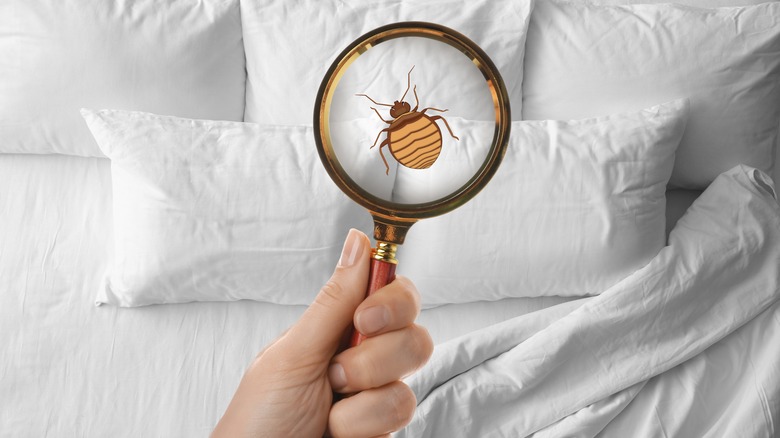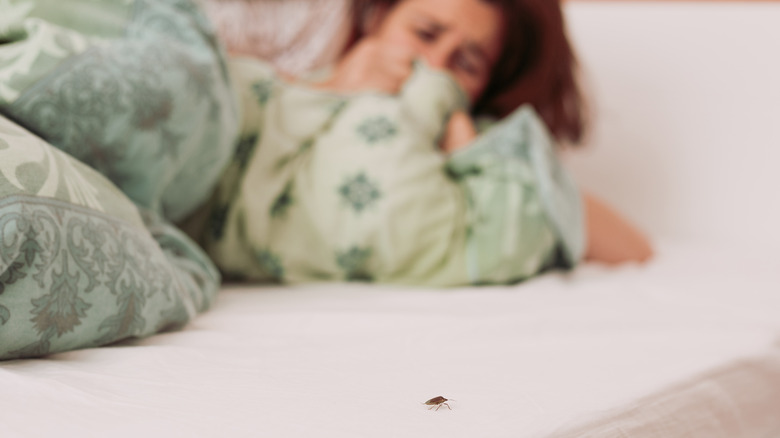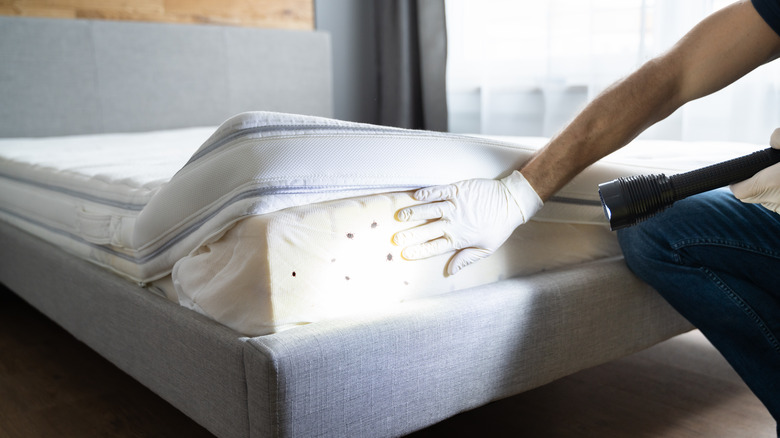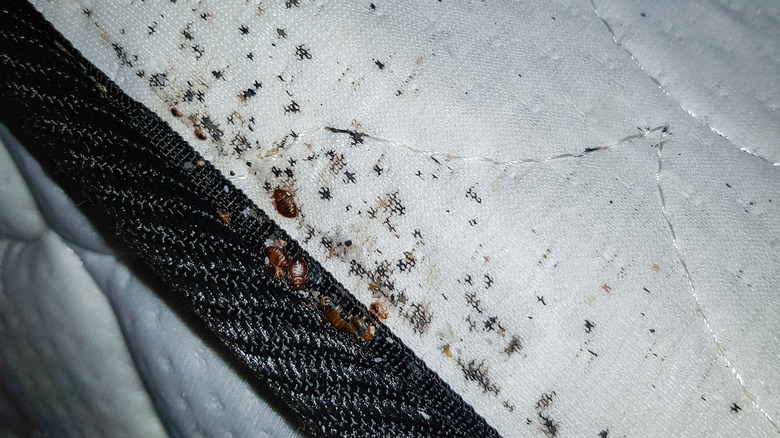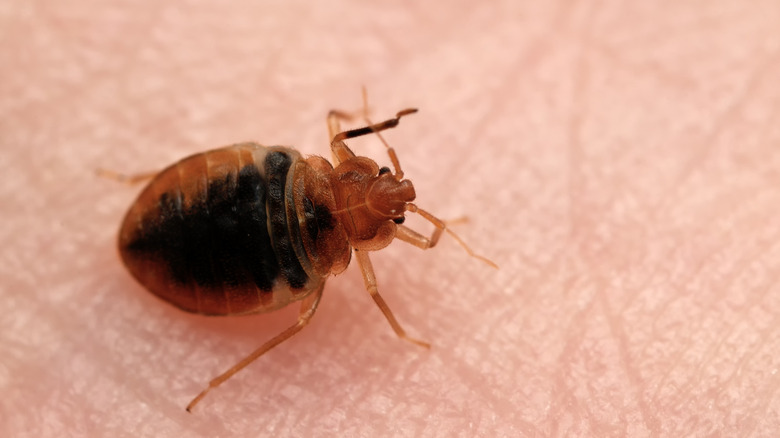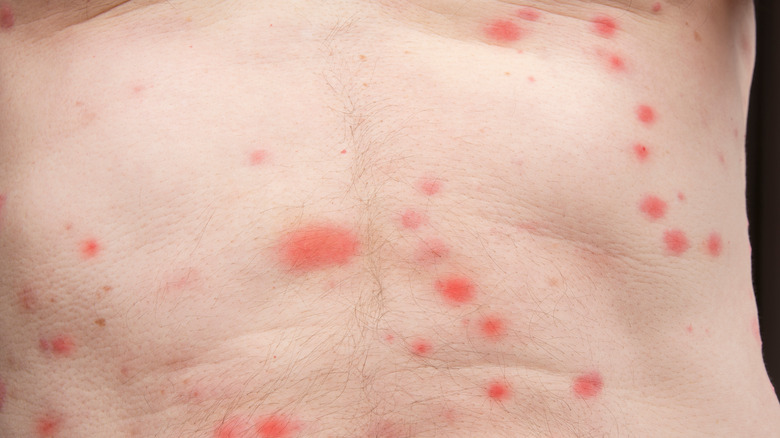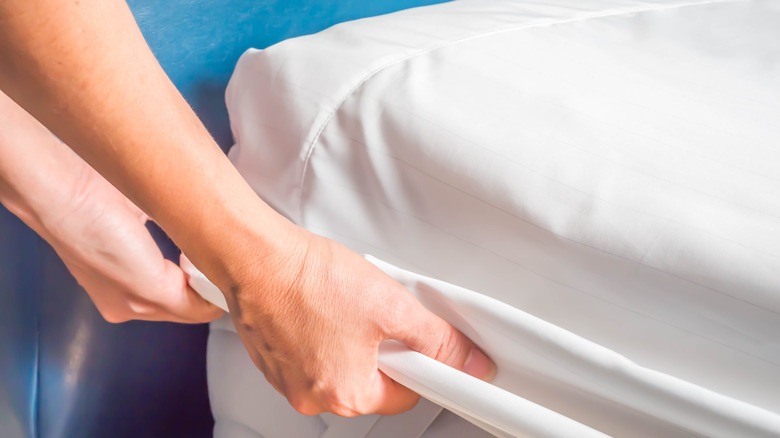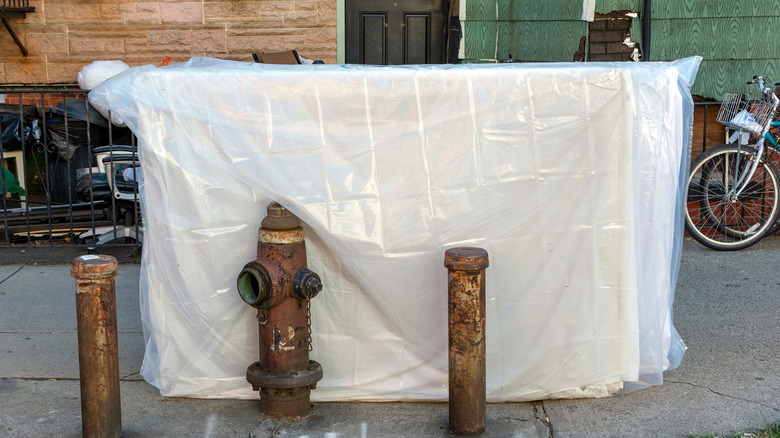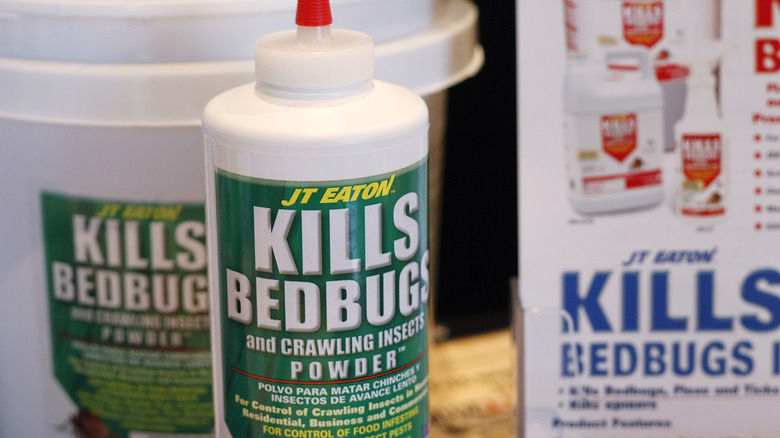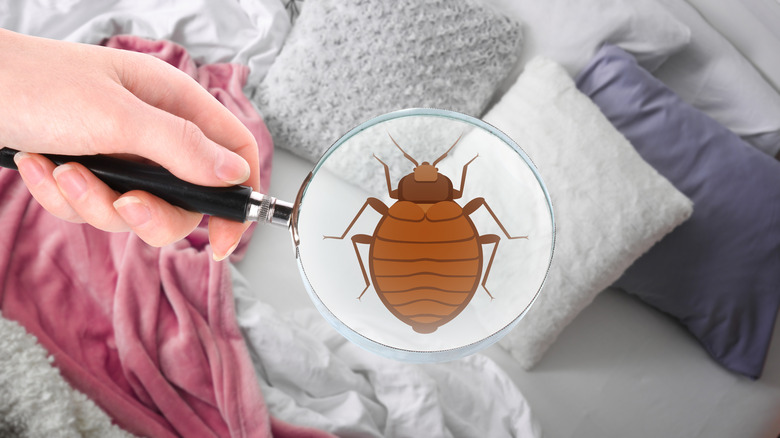Common Questions About Bed Bugs Answered
Those who have had the displeasure of encountering bed bugs would likely describe the small creatures as nasty, blood-sucking devils that are hard to get rid of. But the more scientific answer goes like this: Bed bugs are small insects. When they are young, they are tan in color, but turn reddish-brown as they mature. They kind of look like small apple seeds, as they are small and flat. You can see them with the naked eye, especially when they are adults, but often need a magnifying glass to get a really good look at them.
Bed bugs do not have wings or strong legs, so they cannot fly or jump. They can only crawl. The only thing they eat is blood. Typically, they prefer to consume human blood, but if that is unavailable, they might feast on animals, too. They don't eat food or skin or anything else, so bed bugs can live somewhere that is very clean, as long as a human is present. Bed bugs can also go months without eating, so they are very hard to get rid of once you bring them home.
Bed bugs do not carry any diseases, so if you are bitten you are not at risk of ongoing sicknesses, like Lyme disease from a tick bite. However, bed bug bites tend to sting and itch and can last for weeks. Those who have had one encounter with bed bugs often have anxiety about encountering them again. If you are reading this, you are likely one of those people, or you know someone with a bed bug horror story. Here are the most common questions about bed bugs, answered.
How do you get bed bugs?
Getting bed bugs is a lot easier than you might think. This is because, as their name might suggest, you usually only come into contact with them while you are asleep. This typically means you won't know they are there before it's too late and you are covered in dozens of itchy bites. However, unlike what their name might suggest, beds aren't the only culprit. You can pick up bed bugs from any upholstered item.
You might take a long bus or train ride and pick up a few bed bugs from the depths of the upholstered seat. A friend of yours might have a few bed bug eggs nestled in her favorite purse that's been in the back of her closet for a while. She brings it over, sets it on your couch, then boom! You've got them, too. You can get them from seats at a movie theater, an airport lounge, or even a taxi. Knowing how bed bugs move and how you can protect yourself from them will help you be prepared and mindful when traveling or visiting others.
How can you prevent getting bed bugs?
If you have had an encounter with bed bugs in the past, it's safe to say you're in no hurry to deal with them again. You know how easily they can be picked up and how hard they are to get rid of. However, there are steps you can take to avoid contamination. The first step is to never place your luggage on the bed. Whether it's a friend's house or a hotel, keep the pair separate. Look in the closet for a luggage stand and place your luggage on that, instead. If one isn't available, using the top of a wooden dresser is the next best thing. Because bed bugs have a lack of grip on their legs, they struggle to climb smooth surfaces. While they can travel easily across fabrics and carpets, wood, metal, and plastic present a barrier to them.
The next step is to never lay your clothes out on the bed or chair. Keep fabrics from home away from fabrics from outside as much as you can. Lastly, when you arrive home, don't bring your suitcase inside right away if you are concerned about bed bugs. Instead, wash and dry all of your clothes, and place your suitcase in a trash bag. Leave it in the garage or outdoor storage closet for at least a month before bringing it inside.
What are the signs of a bed bug infestation?
Constantly being on the lookout for bed bugs while traveling can be exhausting. If you think the methods to avoid getting bed bugs are a bit overkill, there is a middle ground you can take. When you first enter space such as a hotel room, act as if there are bedbugs there. Don't place any of your items on soft or upholstered items until you've had a chance to do an inspection.
The first thing to check when you are inspecting for bedbugs is the mattress. Pull off the sheets and the mattress cover. Carefully examine the top of the mattress. Do you see any dark spots? These could be larger spots, like crushed blood or squashed bugs, or smaller spots that look a bit like specks of pepper. These are feces from bed bugs. If you don't see any along the top of the mattress, try the sides, especially along the seams. Bed bugs like tight, dark spaces so this is where they typically hide. Bed bugs like to stay close to their food source, so they typically stay close to where humans spend a lot of time immobile. Once finished with the bed, spread out. Check the crevices in the carpet next to the nightstand, the headboard of the bed (especially if it's fabric), as well as the curtains, chairs, etc. Use a flashlight if you need to. Once you've satisfied yourself that there are no signs of bed bugs, you can relax and enjoy your stay.
Are bed bugs a sign of a dirty home?
Typically, when you have a bug problem in an interior space, it means the place is dirty. If there are fleas or lice in a hotel room, it means it has not been cleaned properly in ages. If you have an ant or cockroach problem, then there are likely food scraps being left out for long periods. That, or something is dead in the room (like a squirrel or mouse) and the bugs are eating it. Bed bugs are an entirely different breed. They only live off of blood, not debris.
Your home could be immaculate. You could disinfect every surface, take the trash out on time, and even change your sheets every single morning. This doesn't matter to bed bugs. They will still thrive even in the most sterile of conditions. Often, people on vacation will think if they stay at a five-star hotel instead of a dirty motel, they are avoiding picking up pests like bed bugs, but this couldn't be further from the truth. So if you are dealing with a bed bug infestation, don't be embarrassed. This says nothing about your personal hygiene or how you keep your home. Instead, think of bed bugs as a highly contagious disease. Sometimes, no matter what precautions you take, it just gets you.
How do you treat bed bug bites?
Sometimes, despite your best efforts in bed bug prevention, you "get got." You wake up one morning and notice small red bumps on your body. You can typically tell they are bed bug bites because they only occur on parts of you outside of your clothing. Bed bugs like to go for the easiest meal possible, so they don't typically crawl inside clothes to eat. Instead, they concentrate along the collar of your nightgown, the elastic of your sleep shorts, the tops of your feet, and even your legs along the seam of your underwear. You can tell they are bed bug bites because they will itch and burn like crazy, but they will also be in a straight line. Typically, there will be at least three, if not four or five red welts in a row.
To treat bed bug bites, you can take an oral antihistamine to help reduce the swelling. In addition, you can consider purchasing a topical anti-itch cream to help reduce the feeling of your skin crawling. Other home remedies include icing the areas with the worst itchiness, which helps draw the blood away and reduces the uncomfortable feeling. If you scratch too much, you might find that you tear the skin with your fingernails and give yourself a bacterial infection. So if you really can't keep your hands off your bites, cover them in bandages, like you would chicken pox, until the urge passes. They should heal on their own within two weeks.
What should you do first when you discover bed bugs at a hotel?
The best course of action to take when you first see or suspect bed bugs is different depending on where you are when you find out. If you check into a hotel, hostel, or other vacation rental and discover flecks of blood in the seam of the mattress, you need to leave immediately. The same can be said if you wake up with the trademark bites in a line. Pick up your luggage and go straight back to the front desk to inform them of the situation. Often, the staff is apologetic and helpful. They should either refund you so you can find accommodation elsewhere or move you to a new room no questions asked.
It's worth it to ask for proof of the actions they took to remove the bed bugs after the fact. This could be a receipt from a pest control company or photos of a new mattress, etc. Be sure to press that if they don't take action to get rid of the bed bugs, you will leave public reviews that this place has bed bugs, which can hurt business.
It's also a good idea to ask your first accommodation if you can use the laundry for free before you go. Wash and dry everything on the highest heat possible. Not much can kill bed bugs, other than extreme heat. Before you arrive in your new accommodation, conduct a thorough examination of your luggage for any stowaways. In some cases, travelers choose to place their baggage in the bathroom so the bed bugs, if any, cannot spread due to the lack of walkable surfaces.
What should you do first when you discover bed bugs at a home?
If you make the unfortunate discovery that you've brought bed bugs home with you after your vacation, don't panic. The first thing to do is to cut off the room you have discovered them in. This is typically the bedroom. Nothing from that room (except your body) should leave that room unless it's going straight into the washing machine. Wrap every single pillow, blanket, sheet, and curtain in trash bags to transport items to the washing machine so a stray bed bug isn't dropped along the way. Those trash bags should immediately go into the outside trash when you are done with them.
Wash all the fabrics on the highest heat possible, then dry them the same way. The heat will kill the bed bugs, so you might want to run everything through twice, just to be sure they are dead. Once you have cleaned an item, keep it in a sealed plastic bin so it cannot be recontaminated.
You can also place sticky bug pads or tape across the carpet in the doorway to catch any runaway bed bugs, should they try to escape. You should vacuum every nook and cranny of the room where you first discovered bed bugs. You don't do this because bed bugs don't like dirty spaces, but because you can vacuum up eggs hidden away before they have a chance to hatch. Next, you need to treat the space with chemicals. You can do this yourself, or call in a pest control company to ensure it's done thoroughly.
Can you save items that have bed bugs?
With a thorough cleaning, many home items can be saved. Things that can be washed in a machine are often salvageable, as you can kill bed bugs through the heat of multiple cycles in the washer and dryer. Clothing, blankets, drapes, and even some pillows can typically be salvaged. If you fear your luggage has been compromised and you don't want to part with it, double bag it in extra-large trash bags. Seal the bags as tightly as you can and then leave the luggage in your garage or outdoor storage closet for a few months. The bugs will eventually suffocate.
If the infestation is particularly bad, things like mattresses, chairs, footstools, etc. should usually just be thrown away. If you find that you are still having problems with bugs after intense vacuuming and chemical sprays, it is time to move on. The stress of constantly fighting against bed bugs can cause a lot of mental strain. One mattress or chair is not worth the suffering over. If you do put these items out for the trash, be sure to mark them as "infested with bed bugs" so another poor soul doesn't take them home thinking they scored a deal.
Should you use chemicals to kill bed bugs?
Even if you decide to hire a professional bug removal company, you won't completely be able to get rid of bed bugs if you don't do the cleaning steps listed above. Insecticides can work well alongside deep cleaning, but not instead of it. If the infestation is especially bad, you should contact a pest controller. It's likely they have extensive experience in the matter and can take care of it for you. This way, you will lose less sleep and be less stressed overall.
If you choose to do so by yourself, be sure to choose a poison that is safe to use indoors. Don't use anything that is marked as "outdoor" or "garden" use as this can harm your health. As an extra measure, you can open the windows of the room you are treating. However, it's best to keep the doors shut with sticky tape under them, lest any bed bugs make a run for it.
In addition, whether you use bug bombs, sprays, or even powders, you must apply them safely. Wear gloves and safety glasses and don't let the chemical touch your skin. While it might be tempting to use more than the recommended amount, doing so could be harmful to your health. You can purchase bed bug-specific chemicals at your local hardware or home and garden store. You can also call a local pest control company for further advice. If you are renting, contact your landlord before using pesticides.
Are there any bed bug removal hacks?
There are a few more natural ways to get rid of bed bugs, but not all of them hold up under scrutiny. The only one that really works is using diatomaceous earth. The substance is made up of the remains of fossilized sea creatures. When bugs come into contact with the powder, they dry out. This eventually kills them. While the powder won't get rid of all the bed bugs, it can be great to use to clear out any stragglers when other methods fail.
Be wary of DIY recipes like cayenne pepper and water, as the pepper typically isn't strong enough to kill the bed bugs on contact as you might have read in your research. That, plus your home will be covered in red stains from spraying it all over the place, which is another problem. In addition, some people swear by using dryer sheets to confuse bed bugs. Since dryer sheets have such a strong smell, the idea is that if the bed bugs can't smell us, they can't bite us. However, this doesn't work. Bounce Dryer Sheets even had to put out a statement confirming its product doesn't kill bed bugs, as reported by The Trentonian.
Why did my bed bug elimination strategy fail?
Sometimes, despite our best efforts, we can't get rid of bedbugs on our own. If you are working your way through the treatment options and are still having problems, take a step back. There are a few things to double-check to make sure that what you did will work next time. If you used an insecticide, consider its actual use. Roach killers, mosquito spray, and even chemicals meant for fleas and ticks typically won't kill bed bugs. You have to get a chemical that's specially made for bed bugs. Even if you have one, it could be possible that you didn't apply it in all the right places. For this reason, you should always keep notes about exactly where you apply chemicals. This way you can always reapply it in those nooks, and expand the area in the future.
If you used the vacuuming or heat method, it's possible that you didn't clear all the eggs. At this point, it might be time to consider getting rid of the possibly infested furniture and starting fresh, so you don't have to keep dealing with the mental strain and itchy bites.
